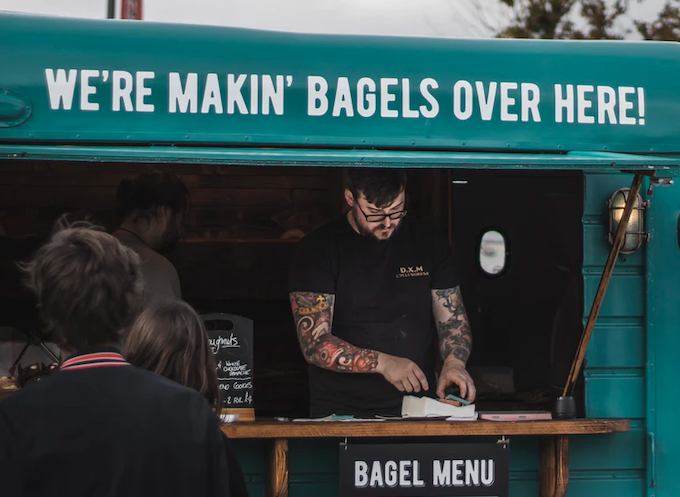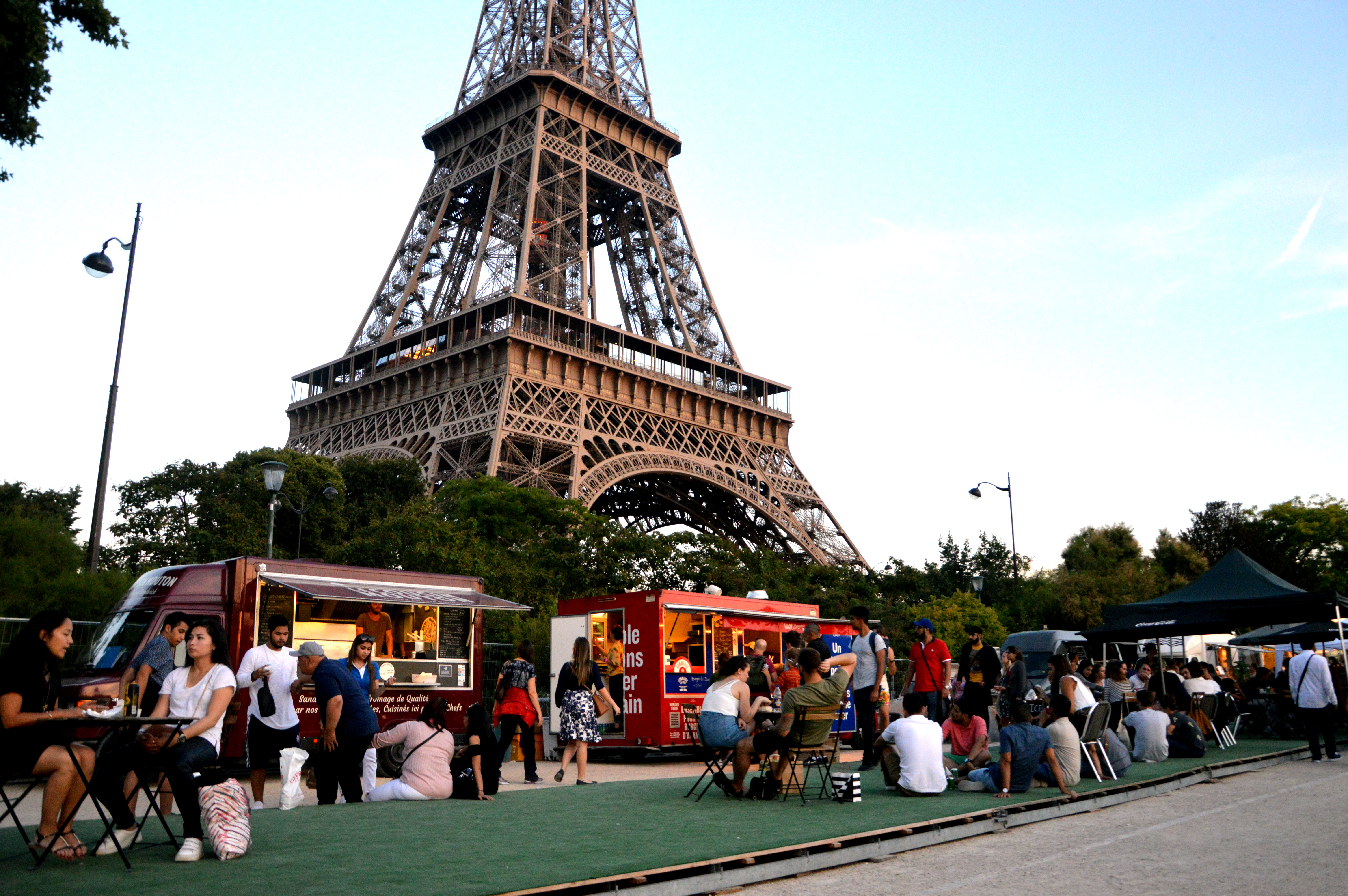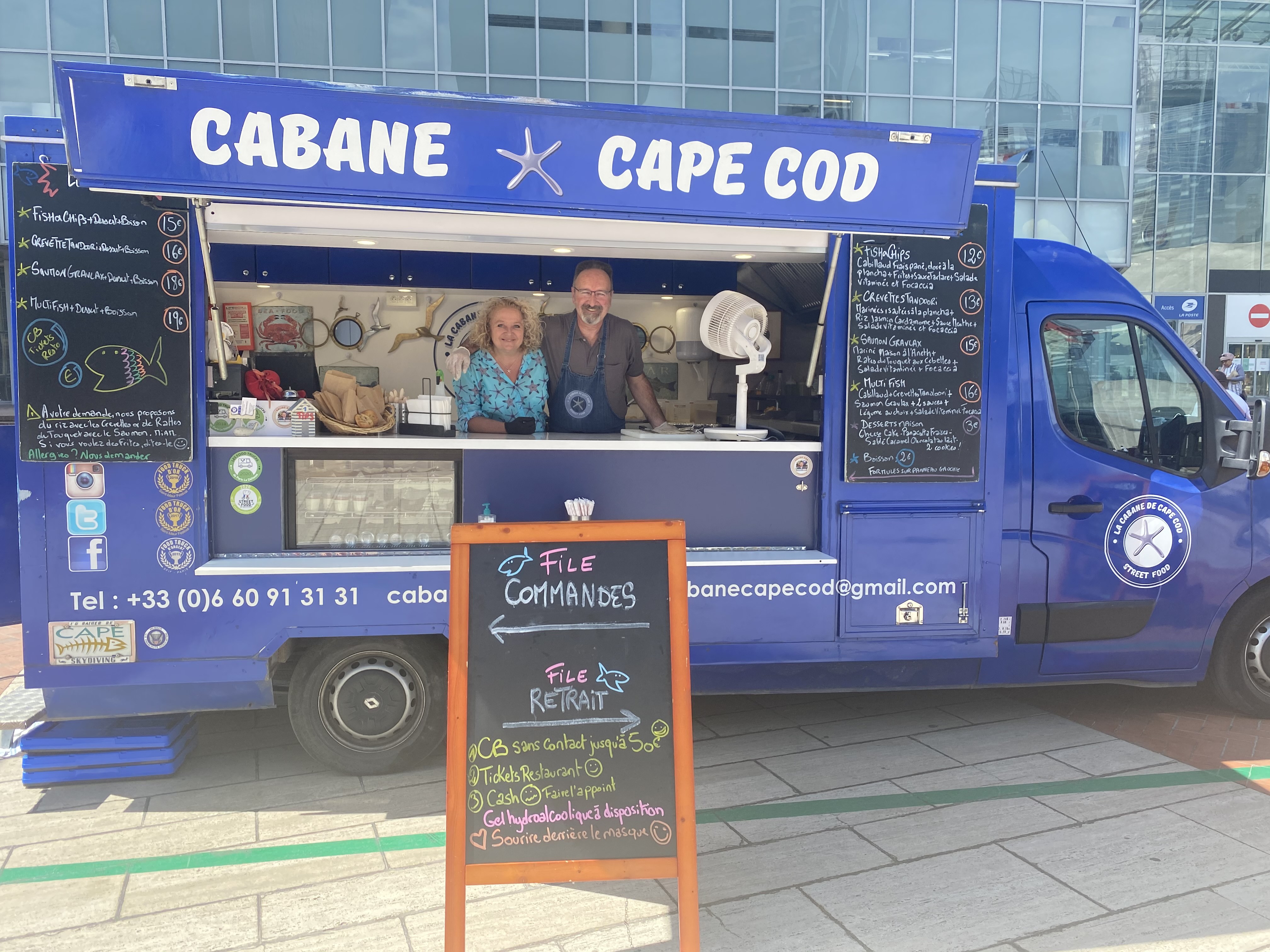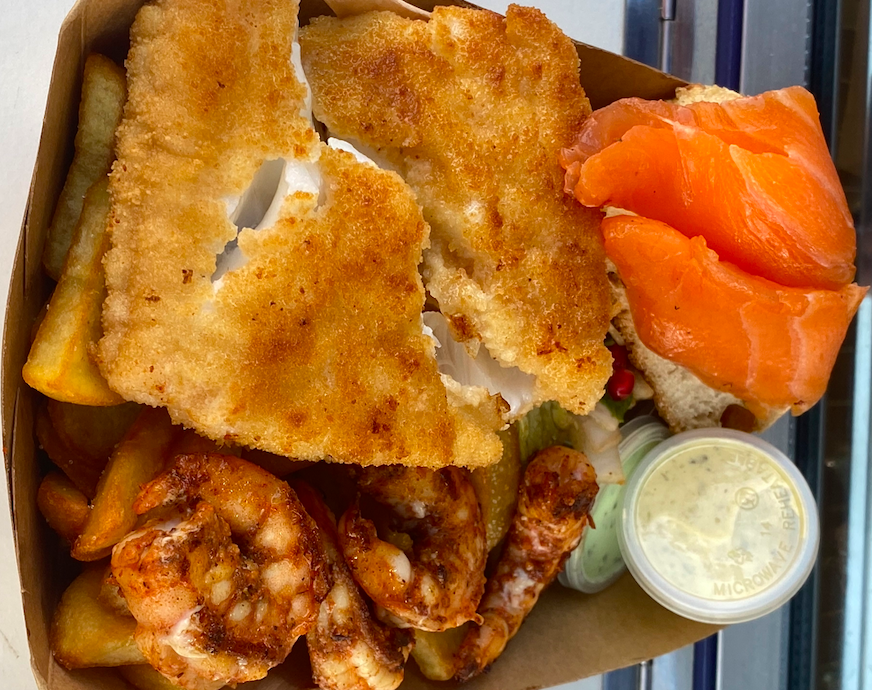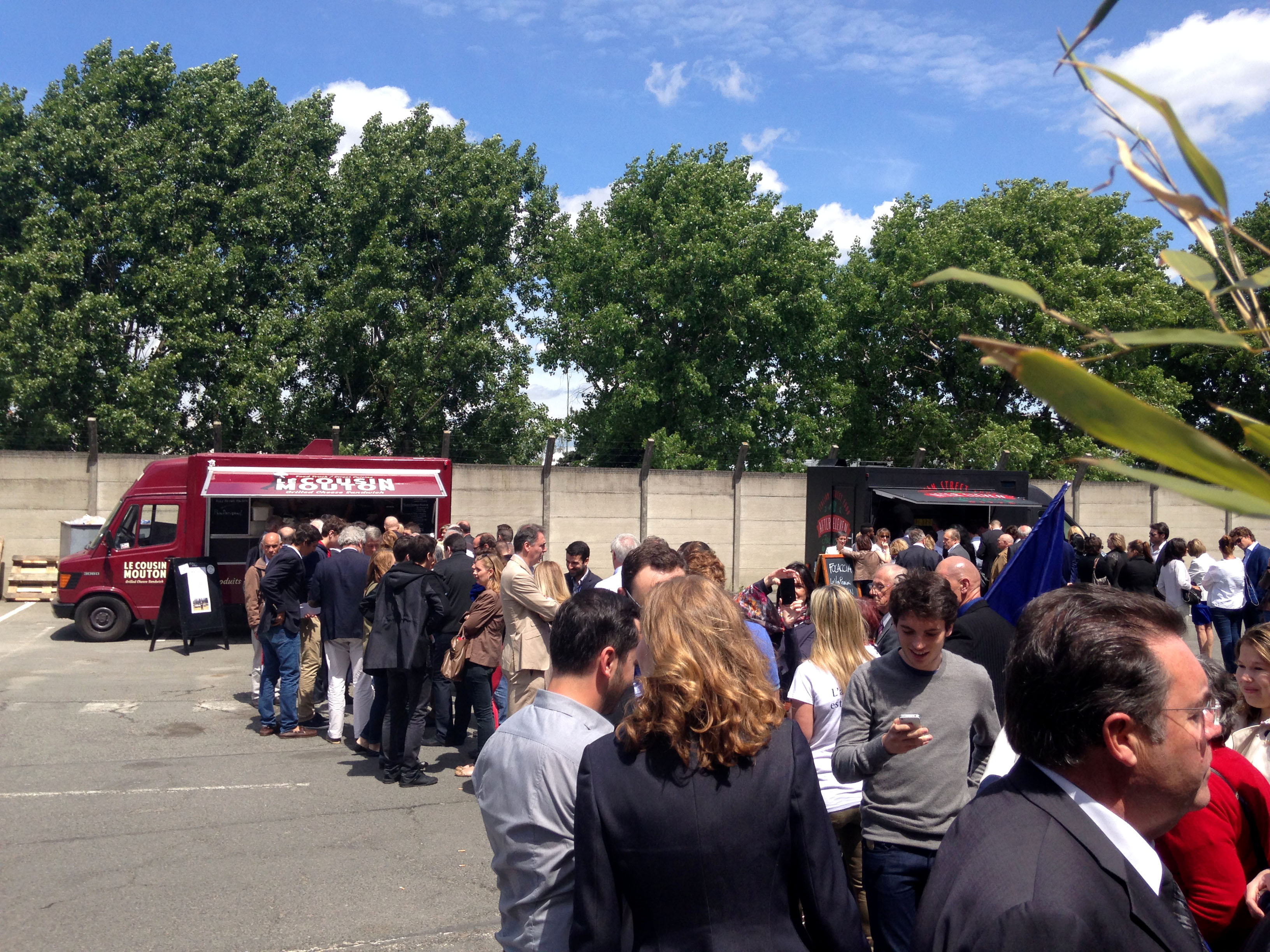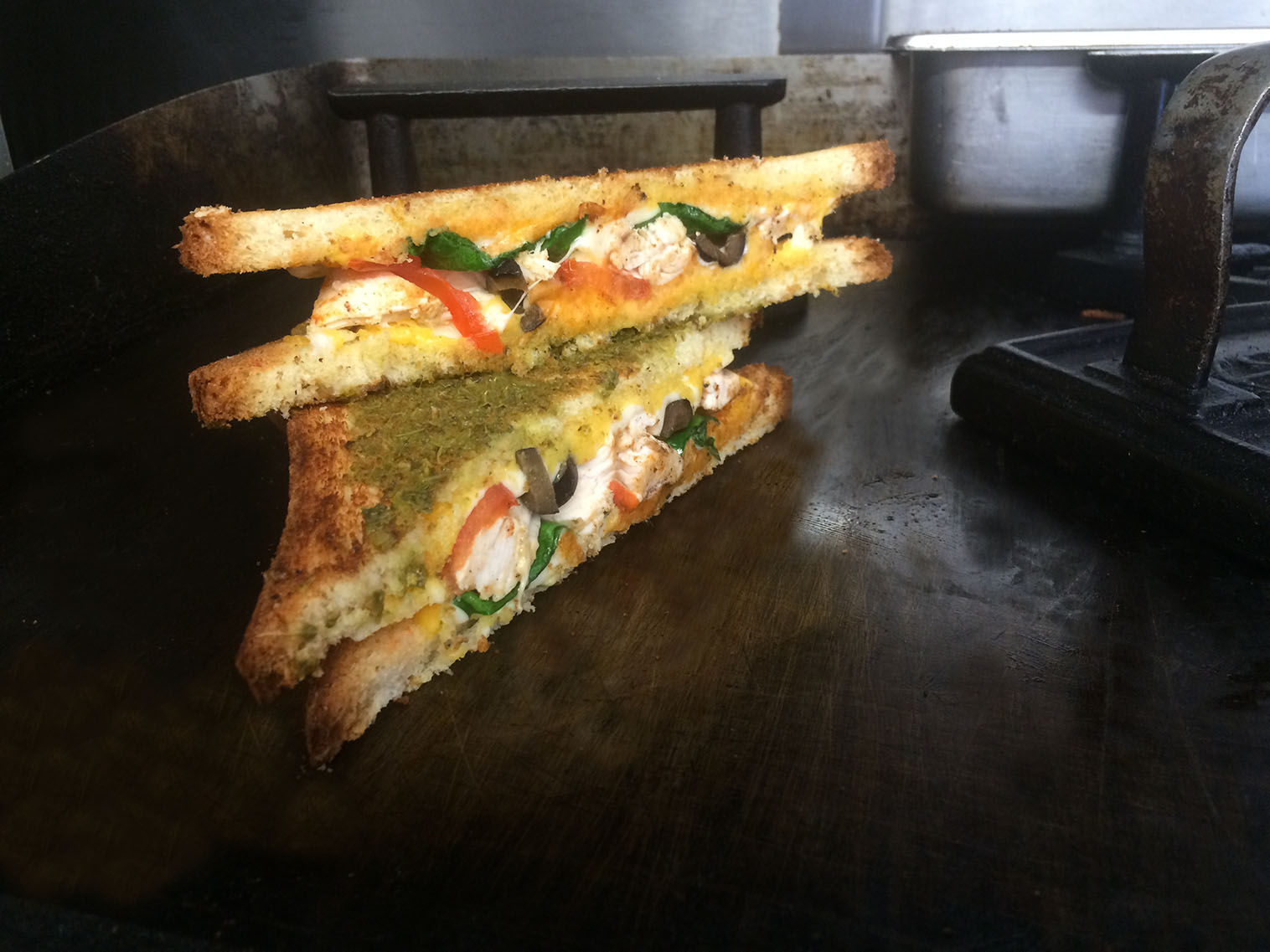Food Truck Culture from America to Paris
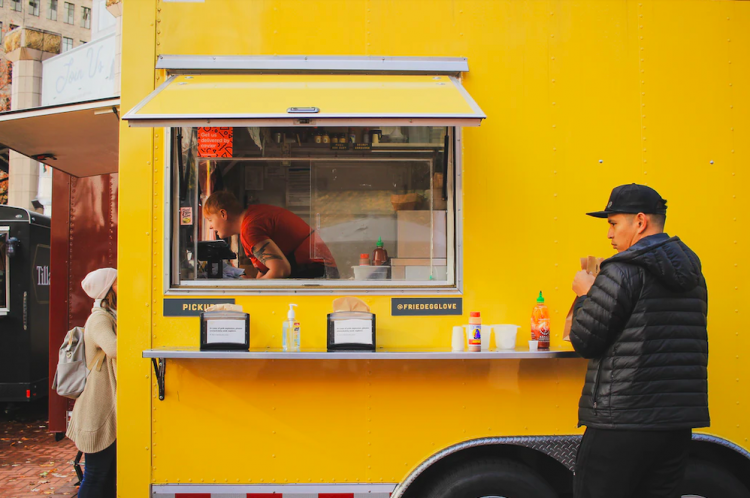
In 2016 I was visiting New York City to attend the Model United Nations Conference with my high school. The entire week was back-to-back suit-and-tie events, nice dinners, professional conferences, and freezing half to death outside in the mid-February cold. On our third day, my roommate and I woke up too late for breakfast in the hotel lobby. We headed out with our hair wet to look for the closest place to find a quick breakfast.
We walked around Midtown, up and down West 53rd street, looking for something fast to eat. Finally, we came across a food truck where bought coffee and a bagel. Being from Costa Rica, I was somewhat familiar with street food, but this was my first American food truck experience.
My roommate assured me that some New York food trucks are even better than restaurants. As a quick breakfast, it was one of the best morning meals I'd ever had. The bagel was perfect, amazingly seasoned, crispy but soft on the inside, and loads of cream cheese that fell through the sides. It was also inexpensive and fast. I immediately understood why so many New Yorkers and Americans living in big cities depend on food trucks for breakfast and lunch. Food truck meals are on-the-go, cheap, and delicious.
After my experience with the food truck in New York, I went about to try some others around the U.S. In 2017, when I visited Los Angeles during the summer, I indulged in one of the best authentic Mexican tacos. Parked right by the Santa Monica Pier, the truck played salsa and created an enjoyable atmosphere as I sat down on the street to eat. A couple of months later, I traveled to Miami for spring break. I was excited to visit Calle Ocho, the Cuban neighborhood in Miami, and try out Cuban food from a food truck.
Image: Unsplash via Alex Motoc
My New York bagel experience came back to me two years later when, in 2018, I moved to France from Costa Rica. My initial impression had been that food trucks were a uniquely American concept in fast food. I was convinced that the food truck business model wouldn't work in Europe. People in Europe would never embrace this fast food eating habit. In Europe, cuisine and sit-down culture and restaurants are treated as sacred places where people enjoy long meals and drink wine with their meals until the late hours of the evening.
When I arrived in Paris, however, I quick noticed that American fast food habits had arrived in France. When I walked through the streets of the 7th arrondissement, I noticed crêpe and panini stands. Food trucks, to my surprise, were also a fixture in Paris. The first food truck in Paris, Le Camion Qui Fume, opened for business in 2011. Selling burgers and fries, Le Camion Qui Fume gained popularity fast and its success encouraged other restaurateurs to open their food trucks. In 2012, an artisanal taco truck arrived followed. This food truck, Cantine California, was owned by an American chef who wanted to bring gourmet Californian food to Paris. Offering classic menu items such as cheesecakes, hot dogs, pizzas, burgers, and bagels have been a success.
Image: Le Cousin Mouton parked in front of the Eiffel Tower at the Fête de la Gourmadise
The same year, the emergence of food truck culture in Paris caught the attention of the New York Times, which published an article titled "Food Trucks in Paris? U.S. Cuisine Finds Open Minds and Mouths." The article observed: "In France, there is still a widespread belief that the daily diet in the United States consists of grossly large servings of fast food", but these perceptions were changing. With the arrival of food trucks in Paris, Parisians were showing keen interest in American food.
As I learned living in Paris, many food trucks in the French capital are run by famous gourmet chefs. One of them is Cabane Cape Cod, the first food truck in Paris focused solely on seafood and New England's flavors. The owners, Roger Le Roy and Nathalie Moine, offer customers a new way of discovering fresh seafood through their original recipes. "I lived in Cape Cod for more than 25 years, and worked in the restaurant industry for ten years before retraining and becoming Manager of Information Systems for the Dow Jones Local Media Group," Le Roy said in an interview.
Le Roy and Moine, friends going back to the 1980s, reunited in 2011 and decided to create their own business in 2015. Some of the menu items include Fish & Chips, Tuna Tataki, Tandoori Shrimp, Squid in Parsley, and Red Mullet with Saffron. Accompanied by salad, fries, or focaccia bread, "everything is fresh, homemade, and cooked in the truck."
Image: Owners of Cabane Cape Code, Roger Le Roy, and Nathalie Moine. (Courtesy of Roger Le Roy)
"It is a daily challenge! It is hard work physically. It requires a lot of energy, organization, and adaptation," said Moine. "You have to know how to do everything in addition to cooking. You have to find locations, canvas businesses or cities, take care of communication, papers, quotes, invoices, purchases, vehicle maintenance."
The couple enjoys roaming around the city, changing places, reaching out to people and cooking for them. "That is what makes it most exciting and different from a restaurant," said Le Roy. "Instead of the clients coming to you, you go to the clients. The food truck also creates a social link because it brings comfort, friendliness, and good meals."
Image: Fried Fish with Smoked Salmon, Tandoori Shrimp, and Homemade Tartar Sauce. (Courtesy of Roger Le Roy)
A food truck that set out to mix French and American cuisine is Le Cousin Mouton. It's dedicated to an American classic: grilled cheese. In an interview, Stéphane Gautier discussed a food truck's inner workings and how his grilled cheese became praised throughout Paris.
"When I started my food truck in 2013, I had to find a typical street food dish—something simple, gourmet, and original for a French local," he said. "I stumbled upon a hot cheese sandwich. Everyone was eating them: Jimmy Fallon, Johnny Deep, and even former President Barack Obama participated in the National Grilled Cheese Sandwich Day."
It makes sense to focus on a simple dish and make it your own, says Gautier. He also wanted to follow an eco-responsible approach by using recycled cutlery and plates, organic produce, and local vegetables. This is what separates Le Cousin Mouton from other food trucks operating in Paris, he says.
Image: Le Cousin Mouton parked at the Congrès Paris Event Center. (Courtesy of Stéphane Gautier)
Talking about competitiveness between food trucks, Gautier mentions how the industry has exponentially grown since 2013. "At the time, there were maybe only 5 or 10 food trucks in Paris. Today, there are maybe 150 food trucks in Paris and its region." Commercially, it is still a niche. Le Cousin Mouton grew due to music festivals, exhibitions, events at university campuses, weddings, and fairs that gave good visibility and promotion to the truck.
Image: Grilled Cheese Poulet Poché from Le Cousin Mouton. (Courtesy of Stéphane Gautier)
Both Cabane Cape Cod and Le Cousin Mouton have struggled ever since the COVID-19 pandemic hit France and the rest of the world in the spring of 2020. "The COVID crisis is a real disaster for restaurants," says Gautier "Offices were almost empty from March to July, and they are currently half empty. The people are teleworking. All events, both public and private, are canceled. I was out of work for two whole months. I lost about 60% of my daily income, but I remain optimistic about the future."
For Cabane Cape Cod, the situation was similar. Moine says they had to close on March 14 and could not resume activity until June 2 because they had no fish. Their sales fell by 80%. "We have tried to overcome the canceling of events and festivals by adapting to the new health standards and engaging in traditional catering," she says.

